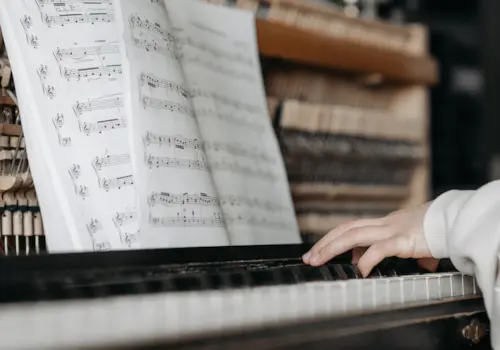19 April 2018
|
Stuart Isacoff reports from the second day’s session, where two pianists capture his attention
Stuart Isacoff reports from the second day’s session, where two pianists capture his attention
The Dimenna Center
New York City
12 April 2018
Sitting on a piano jury can be arduous work. Listening for hours to well-worn repertoire—sometimes the same pieces over and over—tests one’s concentration, patience and stamina. And in the case of the traveling jury for the Leeds Competition who recently screened applicants in Berlin, Singapore and New York, one can add exhaustion to the list of difficulties.
What makes it worth the effort? Few entrants rise above the ordinary, but when a truly gifted player emerges the emotional reward is substantial. Of the six pianists I heard during the final day of the Leeds’ trials in New York, at least one young player earned that distinction.
The event took place at the DiMenna Center, home to The Orchestra of St Luke’s, in an intimate space (pictured below). Along with a small audience the room accommodated a Steinway piano and the first-round jury: Adam Gatehouse, co-Artistic Director of the Leeds Competition; Japanese pianist and former Leeds finalist Noriko Ogawa; Israeli-American pianist and teacher Ilana Vered; and Berlin Philharmonic piano technician Thomas Hübsch.
The repertoire was mostly standard fare, and despite high expectations from a contest that produced the likes of Radu Lupu, Murray Perahia, and Alessio Bax, so was the playing. The entrants all came from impressive schools—The New England Conservatory, The Juilliard School, Yale—yet many sounded simply like good students. There was a Scarlatti performance, rendered cleanly and with a light touch, but with occasional rhythmic liberties, and a Liszt interpretation that suffered from overlong pauses and, in quiet passages, a certain aimlessness. It takes a special musical intelligence to reveal Liszt as more than merely pedestrian in his longer works.
Bach was often dry and bland and, from one player, even choppy. It never fails to surprise that a single piano can sound so different in different hands. One pianist’s Brahms was particularly bangy and architecturally less than organic (I was reminded of novelist John Gardner’s complaint that writers today tend to produce works in which events simply occur rather than grow from each other). Ravel lacked sweep and sweetness. Bartok suffered from too little variety in voicing. Many of the performers failed to convey a strong sense of shaping and shading.
Two of the applicants stood apart. Sae Yoon Chon, a student at the Glenn Could School in Toronto, played Beethoven’s Sonata Op 10 No 2 with rhythmic crispness and a clear sense of character and dramatic structure. And his Choral et Variations of Dutilleux demonstrated superb control of color and sonority. It was technically on a very high level.
But the most impressive player of the day was Eric Lu of the Curtis Institute, who, at 20, also appeared to be the youngest. It takes courage to choose Mozart at a competition—it is easy to do too much or too little when performing this composer. His Sonata in C K 330, was simply lovely: lyrical and warm, bringing out the rhythmic syncopations but not over-emphasizing them. This playing had a quality that was most valued in Mozart’s day: good taste. But perhaps what most set this pianist apart was his focus on storytelling at the piano. That was equally true in Chopin’s Barcarolle, a piece that could easily suffer from too much sameness. It was tender, heartfelt, and atmospheric without descending into impressionism. Lu’s use of the pedals was masterful.
This was a mere snapshot, of course. The actual competition in Leeds, with its many demands will be telling. And of the many pianists I missed, Adam Gatehouse reports that the level has been very high. No doubt the real trials will be interesting.
Stuart Isacoff’s latest book is When the World Stopped to Listen: Van Cliburn’s Cold War Triumph and Its Aftermath (Knopf/Vintage)
To find out more about the competition and to book your tickets for September, please visit The Leeds website








